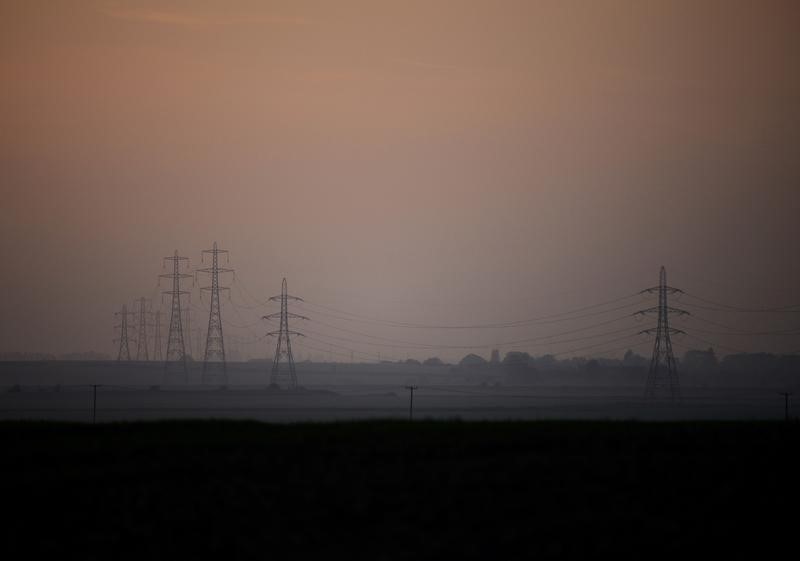By Karolin Schaps
LONDON (Reuters) - Rebounding energy prices are giving Britain's 'Big Six' energy suppliers a chance to win back ground lost to smaller rivals and stem an exodus of customers that shaved off more than a billion pounds in revenue last year.
The Big Six - Centrica's (L:CNA) British Gas, SSE (L:SSE), E.ON (DE:EONGn), RWE npower (DE:RWEG), EDF Energy (PA:EDF) and Scottish Power (MC:IBE) - were hit hard by weak energy prices last year that decimated their upstream profits and lured customers to cheaper tariffs on offer at smaller competitors.
Britons have also grown increasingly dissatisfied with poor customer service from market leaders, enabling smaller rivals to snatch market share with more efficient service and tailored offers such as green energy supply.
As small, independent energy suppliers, such as First Utility, Ovo Energy or Utility Warehouse (L:TEP), buy most of their customers' energy needs for a shorter period, they were able to slash tariffs as energy prices tumbled by 20-30 percent over the course of 2015. Large suppliers typically hedge a few years ahead, locking in prices over a longer period.
But small players are now having to increase their tariffs to cover higher wholesale prices, handing the Big Six an opportunity to fight back.
Energy market prices for the winter, the peak demand period for heating, have risen nearly 30 percent since April due to a rise in oil prices and weak gas storage levels.
"Now that commodity prices have bounced back, the discount small suppliers can offer versus the Big Six has been shrinking," said Roland Vetter, head of research at commodity investment firm CF Partners.
Industry data from EnergyUK shows the percentage of consumers switching from a large to a small supplier fell in June to the lowest since April 2015.
RWE won more than 200,000 new British customers in July, returning its customer base to end-2015 levels, while No. 2 supplier SSE reduced customer losses to 50,000 between March and June, from 90,000 over the same period last year.
Smaller supplier Ovo Energy, in contrast, has increased its fixed-term tariff by 3.6 percent and Co-operative Energy has lifted one two-year fixed tariff by as much as 103 pounds ($136), according to uswitch, a site that compares energy tariffs and takes a commission payment from suppliers when energy users switch.
CUSTOMERS OVERCHARGED
Some small suppliers may not have sufficient financial means to buy energy further ahead than a few months. Darren Braham, chief finance officer and co-founder of First Utility, said a weak hedging strategy was a "very, very risky proposition".
"They've got this constant tension between 'how much can I afford to hedge and suck up working capital' against the risk of wholesale prices moving against them."
The weak hedging position of some small suppliers has worried other players in the market.
"If one small supplier goes belly up then it will affect all small suppliers," said Simon Oscroft, a former energy trader at Macquarie, who set up supplier SO Energy in late 2015.
"Everyone would lose faith in some of those newer, more innovative and better managed suppliers. It would set the energy industry back a few years."
Oscroft said SO Energy customers sign up on 12-month contracts, which his trading team can fully hedge in the forward market.
Small suppliers contacted by Reuters, including Ovo Energy and Affect Energy, declined to comment on their hedging strategies due to commercial sensitivity. Others did not respond to requests for comment.
Smaller providers had increased their share of the electricity market to 13 percent by March this year, and took 14 percent of the gas market, both up from 10 percent in early 2015, according to energy regulator Ofgem, as they also benefited from customer frustration at the Big Six's tariffs.
In June, the Competition Markets Authority ordered the largest energy suppliers to cap some of their most expensive tariffs after a two-year investigation found they had overcharged customers by billions of pounds.
Utilities deny overcharging customers.
As smaller rivals face a battle to retain market share, some are moving to strengthen their balance sheets.
Good Energy (L:GOODG), which specialises in providing energy from renewable sources, raised 3.1 million pounds in a share offer in June, while some of the biggest independent energy suppliers, including First Utility and Utility Warehouse, have hired established trading businesses, in these cases Shell (L:RDSa) and npower, to carry out trading and hedging.
But deteriorating balance sheets could prompt more drastic action if wholesale prices continue to rise.
Opus Energy, a business energy supplier in which Telecom Plus holds a 20 percent equity stake, is considering putting itself up for sale, Telecom Plus said last week.
All other small suppliers are privately held, making it impossible to verify their most recent financial accounts.
